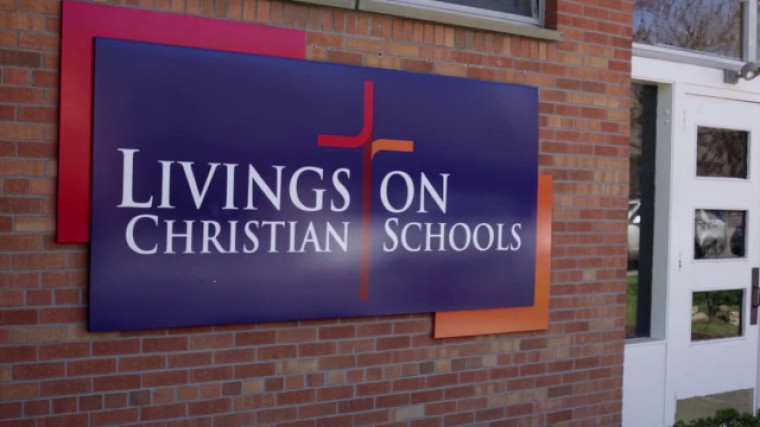US Supreme Court declines to hear appeal of Christian school that was banned from relocating to Michigan township

The U.S. Supreme Court has announced on Monday that it will not consider the appeal of Livingston Christian School (LCS), which was prevented from relocating to a Michigan Township after the board refused to grant a permit in 2015.
The Genoa Township rejected the school's request to use a part of Brighton Church of the Nazarene in 2015 citing traffic concerns.
According to Livingston Daily, the school wanted to move from its old location in neighboring Pinckney before the start of the 2015–2016 school year and had entered into a lease agreement with the church.
Court documents have indicated that the school moved out of Pinckney because of enrollment and income concerns.
The rejection has prompted LCS to sue the Township under the Religious Land Use and Institutionalized Persons Act.
Under the legislation, cities are prohibited from using zoning rules to drive out religious institutions from their jurisdiction.
The First Liberty Institute, which represented the school in court, argued that the school's request was denied despite recommendations from the town's planning commission and consultants, who reportedly gave their approval to use the property for the school.
The lawsuit further contended that the township's rejection substantially burdened the school's operations.
A federal court ruled in favor of the township, prompting LCS to file an appeal. In June last year, a three-judge panel of the U.S. Sixth Circuit Court of Appeals ruled that the township did not violate federal religious protection laws when it rejected the school's application.
The appellate court stated that the school had failed to present sufficient evidence that the location in Pinckney was not sufficient for its operations.
Hiram Sasser, general counsel at First Liberty, expressed concern that the Sixth Circuit and the Supreme Court decision could set a precedent for other towns and cities to reject other religious schools.
"This is a deeply disappointing decision, not only because of what it means for our clients but because it will embolden other cities and towns across the country to keep religious organizations from contributing to their community," he said in a statement, according to CBN News.
"Federal law expressly prohibits the government from using zoning laws to keep religious institutions out of their town. We are extremely disappointed the Supreme Court will allow this terrible precedent to stand. We are, however, grateful to Rob Kelner and the entire team at Covington & Burling, LLP, for their diligent efforts in seeking to protect religious freedom in this case," he continued.
 Christians don't have to affirm transgenderism, but they can’t express that view at work: tribunal
Christians don't have to affirm transgenderism, but they can’t express that view at work: tribunal Archaeology discovery: Medieval Christian prayer beads found on Holy Island
Archaeology discovery: Medieval Christian prayer beads found on Holy Island Presbyterian Church in America votes to leave National Association of Evangelicals
Presbyterian Church in America votes to leave National Association of Evangelicals Over 50 killed in 'vile and satanic' attack at Nigerian church on Pentecost Sunday
Over 50 killed in 'vile and satanic' attack at Nigerian church on Pentecost Sunday Ukrainian Orthodox Church severs ties with Moscow over Patriarch Kirill's support for Putin's war
Ukrainian Orthodox Church severs ties with Moscow over Patriarch Kirill's support for Putin's war Islamic State kills 20 Nigerian Christians as revenge for US airstrike
Islamic State kills 20 Nigerian Christians as revenge for US airstrike Man who served 33 years in prison for murder leads inmates to Christ
Man who served 33 years in prison for murder leads inmates to Christ


 Nigerian student beaten to death, body burned over ‘blasphemous’ WhatsApp message
Nigerian student beaten to death, body burned over ‘blasphemous’ WhatsApp message 'A new low': World reacts after Hong Kong arrests 90-year-old Cardinal Joseph Zen
'A new low': World reacts after Hong Kong arrests 90-year-old Cardinal Joseph Zen Iran sentences Christian man to 10 years in prison for hosting house church worship gathering
Iran sentences Christian man to 10 years in prison for hosting house church worship gathering French Guyana: Pastor shot dead, church set on fire after meeting delegation of Evangelicals
French Guyana: Pastor shot dead, church set on fire after meeting delegation of Evangelicals ‘Talking Jesus’ report finds only 6% of UK adults identify as practicing Christians
‘Talking Jesus’ report finds only 6% of UK adults identify as practicing Christians Mission Eurasia ministry center blown up in Ukraine, hundreds of Bibles destroyed: 'God will provide'
Mission Eurasia ministry center blown up in Ukraine, hundreds of Bibles destroyed: 'God will provide' Church holds service for first time after ISIS desecrated it 8 years ago
Church holds service for first time after ISIS desecrated it 8 years ago Burger King apologizes for 'offensive campaign' using Jesus' words at the Last Supper
Burger King apologizes for 'offensive campaign' using Jesus' words at the Last Supper Uganda: Muslims abduct teacher, burn him inside mosque for praying in Christ’s name
Uganda: Muslims abduct teacher, burn him inside mosque for praying in Christ’s name